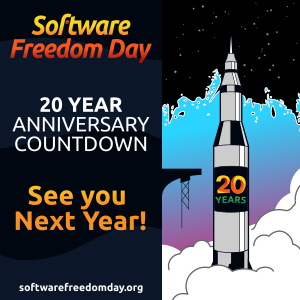skip to main |
skip to sidebar
 By now you have probably heard of the One Laptop Per Child program's Give 1 Get 1 program which allows (North American) consumers to purchase an XO laptop for twice the price, and donating a second XO to a child in a developing country. Originally planned to run for just two weeks, it's now been extended to the end of the year.
By now you have probably heard of the One Laptop Per Child program's Give 1 Get 1 program which allows (North American) consumers to purchase an XO laptop for twice the price, and donating a second XO to a child in a developing country. Originally planned to run for just two weeks, it's now been extended to the end of the year.
One of the reasons given for the extension is to allow organized fund raising campaigns to get involved. I know I have heard several suggestions that U.S. schools raise money to purchase XOs for their own use while helping a school overseas.
It's on my short list for Christmas!
 By now most everyone will have heard about Amazon's Linux-based Kindle ebook reader, either from the fawning Newsweek story (the future of reading!) or the thousands of other blog posts over the last 24 hours.
By now most everyone will have heard about Amazon's Linux-based Kindle ebook reader, either from the fawning Newsweek story (the future of reading!) or the thousands of other blog posts over the last 24 hours.
In case you haven't heard of it yet, the Kindle is a 10 ounce ebook reader with an electronic ink screen, rudimentary thumbboard, enough memory to store 200 books, and wireless connectivity to Amazon's new Kindle store (using Sprint's EV-DO cellular network). Books can be purchased and downloaded from anywhere within reach of Sprint's network in just a few minutes, according to Amazon. Amazon is starting with about 90,000 books in the Kindle store, many priced at $9.99 each. For an additional charge, certain newspapers and blogs can be subscribed to through the device and will be automatically delivered to it. All this for $399, with network access included in the initial price.
Interestingly, there's an experimental live reference service called "Ask Kindle NowNow". Hmmm, you can use this device to get books to read, and answers to reference questions... What existing institutions does this compete with?
Here's my take. As a consumer product, Amazon is trying to imitate Apple's iPod and iTunes experience, making it all "just work" by creating a closed system with Amazon very much in control. The Kindle supports documents in Amazon's proprietary Kindle (.azw) and non-DRM'd Mobi (.mobi & .prc) formats, as well as text (.txt) files. It does not support the industry standard .epub format. Documents in some other formats (including HTML and Microsoft's .doc) can be run through a conversion service (apparently for a 10 cent fee) and be added to the Kindle. PDF support through this process is described as "experimental".
I liked the iPod when it first came out. It lacked features of other digital music players (no radio, for example), but the product had a sort of tactile likability that appealed to me. The closed system, DRM'd content and the prospect of having your music library hostage to the whims of a large corporation, well, these things did not appeal to me. But I could definitely see why people liked it-- like taking a packaged tour, letting someone else make decisions often makes things easier.
But the Kindle does not appeal to me on an aesthetic level. It's bland retro 80s styling and awkward looking keys don't make up for the e-ink display. And on a practical level, putting money into building up a book collection in proprietary formats worries me more than ever. The iPod got away with it in part because it was introduced six years ago. I think the tide is turning away from proprietary formats and closed systems-- just look at Apple's unsuccessful attempt to keep the iPhone closed. The price also seems too high-- although it includes the wireless service, how many people really buy enough books to justify a $400 reader? Say you save $10 per title buying the electronic version, that's 40 books just to break even on the reader. That price will limit the appeal to anyone outside the book hyper-buying classes.
So is this the "iPod for Books" we have all been looking for? Not version 1.0, anyway. In fact, the Kindle reminds me of another Apple product that came to define a product that could not break out of a niche market due to high price and compatibility issues, the Newton.
Powered by ScribeFire.




